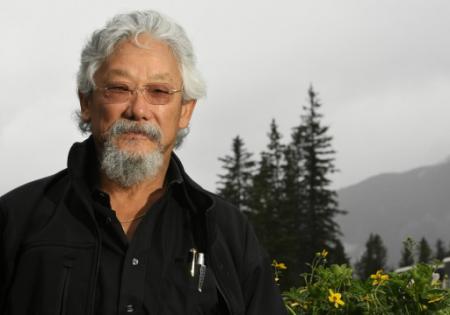Is the Glass Half Full or Half Empty?
Published on January 8th, 2014
A fascinating article in an alternative Canadian newspaper hit on something important recently when it claimed that “it’s not cool to be pessimistic.”
As the article’s headline observed: “Optimism abounds despite grim data on climate change, overpopulation, oil depletion, and economy.”
Journalist Charlie Smith spoke with several leading scientists and economists who for years have “wrapped their minds around the most vexing challenges facing humanity.” They have been sounding the alarm on overpopulation, peak oil and global warming. Yet, to a person, they are incurable, if cautious, optimists.
Perhaps they’ve been imbibing and prescribing too much “hopium.” What is hopium? The Urban Dictionary defines it as: “a political narcotic …that makes moderate social liberalism, ethnicity, individual purity of heart, and soaring rhetoric appear to be substantive progressive change.”
Hopium is also the mandatory note of hope many activists feel compelled to end their harangues and homilies with, lest their readers and listeners wonder why the hell they just wasted time reading/listening to a despondent diatribe rather than indulging in hedonism while they still can.
 |
| Tim Flannery |
Tim Flannery is an Australian mammalogist, paleontologist, environmentalist and global warming activist. He showed foresight in becoming a paleontologist as well as a mammalogist, because fully one-quarter of the mammals on earth are now threatened with extinction. Yet surprisingly, according to Smith, Flannery remains an optimist, believing that Gaia (the ancient Greek goddess for the Earth) will ultimately protect herself from mayhem being unleashed by that clever but not yet wise species known to science as Homo sapiens.
Scientist and environmentalist David Suzuki has been called the Canadian Carl Sagan for his ability to reach mass audiences through the CBC television series The Nature of Things, which he has hosted since 1979. For many years, Suzuki has decried human overpopulation as a grave threat to nature and to us.
Although Suzuki had long avoided Canada’s immigration issue – even though Canada’s immigration rate is more than three times the U.S. rate (when measured as “net immigration by 1,000 population”) – in 2013 he was both praised and rebuked for announcing that Canada is already “full” and that the country’s immigration policy is “crazy.”
 |
| David Suzuki |
Yet the David Suzuki Foundation believes that solutions to environmental problems “are in our nature.” Smith writes that Suzuki “speaks bravely of humanity's chance of survival in the face of rising greenhouse gas emissions,” as long as we make sensible decisions about fossil fuels.
Smith cites several other cases of dubious hope:
- Canadian scholar and journalist Gwynne Dyer has written optimistically about geo-engineering heading off the climate crisis.
- Conservationist Tzeporah Berman believes that cooperation between well-intentioned corporate executives and climate-friendly governments can avert an environmental Armageddon.
- Economist Jeff Rubin has written and spoken extensively on the economic impact of oil depletion, yet he frequently waxes optimistic about how people will cope in a post-peak oil world characterized by a collapse of international trade and economic stagnation rather than economic growth.
Writes Smith:
I confess that I'm troubled by all the optimism I encounter from leading thinkers on inequality, climate change, overpopulation, and oil depletion.
If it seems contradictory and paradoxical or even a tad delusional, that’s because it is. But by their very nature, venerable, outspoken activists must have an optimistic streak. Otherwise they would burn out in short order, and we wouldn’t hear any more from them.
As a long-time environmental and population activist myself, I have often told folks that I feel like I’m walking along a knife-edged mountain ridge, with cautious optimism on one side and an abyss of utter gloom on the other.
But at least these circumstances beat those described by comedian Woody Allen once in a commencement speech:
Mankind is facing a crossroad – one road leads to despair and utter hopelessness and the other to total extinction – I sincerely hope you graduates choose the right road.




